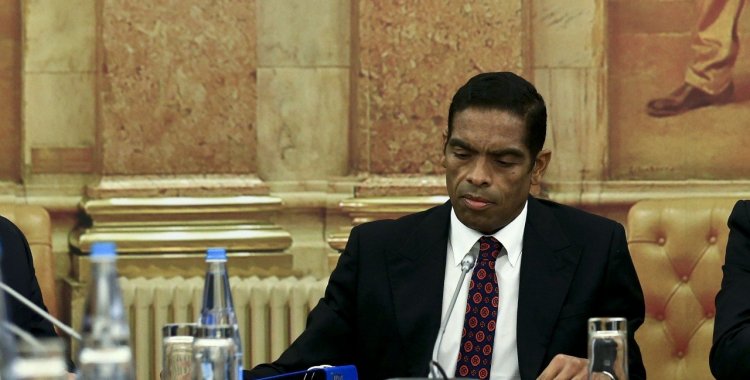Regarding the statute of limitations, the judgment clarifies that "the statute of limitations has not yet elapsed" for the crimes that Álvaro Sobrinho is accused of - aggravated breach of trust, qualified fraud and aggravated money laundering - and therefore rejects the defendant's request.
The judgment also maintains that the moment when Álvaro Sobrinho was constituted as an arguido, in October 2015, "interrupted the statute of limitations, starting to run a new limitation period".
In the decision, the Lisbon Court of Appeal (TRL) contests that Álvaro Sobrinho was not confronted with new facts in the interrogation of last March.
"Only the failure to read the appealed order could justify the allegation that nothing new was communicated to the appellant", reads the TRL order, dated December 21 and issued by the judges Maria Leonor Botelho, Ana Paula Grandvaux and Rui Teixeira.
The Court considered that the facts communicated by the investigating judge Carlos Alexandre on 17 March 2022 during the interrogation of Álvaro Sobrinho, accused in the so-called BESA case, "are much broader and more concrete than those communicated to him by the Public Ministry in the interrogation" of 19 October 2015.
The TRL refers, in particular, that "the people involved in the financial flows described, the accounts used for the capital movements in question and the total amounts involved are in a much higher number than what appeared in the facts communicated in 2015".
"The evidence that supports the facts now communicated to the defendant is not just that indicated to him in 2015, including many others that were collected", adds the judgment, which refers to expert evidence, forensic audit reports, bank documentation and emails seized, among others.
According to TRL, the facts of the accusation are "strongly indicted", so "no censure deserves" the contested decision, in which Carlos Alexandre imposed a set of coercive measures on Álvaro Sobrinho: term of identity and residence, a guarantee of six million euros and the ban on leaving Portugal while the guarantee was not provided.
"With regard to the dangers considered verified in the contested order, specifically, danger of flight and danger to the acquisition, conservation or veracity of the evidence, in view of the strongly indicted factuality imputed to the defendant and personality traits revealed therein, it is evident the verification of such dangers", reads the decision.
Pointing to Álvaro Sobrinho's financial assets and the ease of moving and leaving the country, the TRL considered "the risk of the defendant's escape being concrete, in order to exempt himself from the trial".
Regarding the value of the guarantee, the TRL considered that "the amount set is necessary, adequate and proportional" since "only the setting of a value that represents some sacrifice for the defendant can safeguard the precautionary requirements that in the case are felt ", defending the adequacy of the remaining coercive measures, taking into account the "seriousness of the strongly indicted offenses" and the "sanctions that will foreseeably be applied".
Former Portuguese-Angolan banker Álvaro Sobrinho illegally moved and benefited from more than 9.3 million euros obtained by misappropriating BES funds in BESA's "cleaning" accounts, according to the Public Prosecutor's Office.
This is one of the many points of the accusation against the former president of BESA Álvaro Sobrinho in a process in which the former administrator of Banco Espírito Santo Angola (BESA) Hélder Bataglia, as well as the former president of BES Ricardo Salgado and the former administrators Amílcar Pires and Rui Silveira.
Charges were filed against five members of the Board of Directors of BESA and BES, for aggravated breach of trust, qualified fraud and aggravated money laundering, for facts that occurred between 2007 and July 2014.
The accusation concerns the granting of financing by BES to BESA, in lines of credit from the Interbank Money Market (MMI) and bank overdraft. As a result of this criminal activity, on 31 July 2014, BES was exposed to BESA in the amount of close to 4.8 billion euros.
The advantages resulting from the commission of the crimes indicted, in this investigation, account for the global amounts of 5,048,178,856.09 euros and 210,263,978.84 US dollars, concludes the prosecution.







